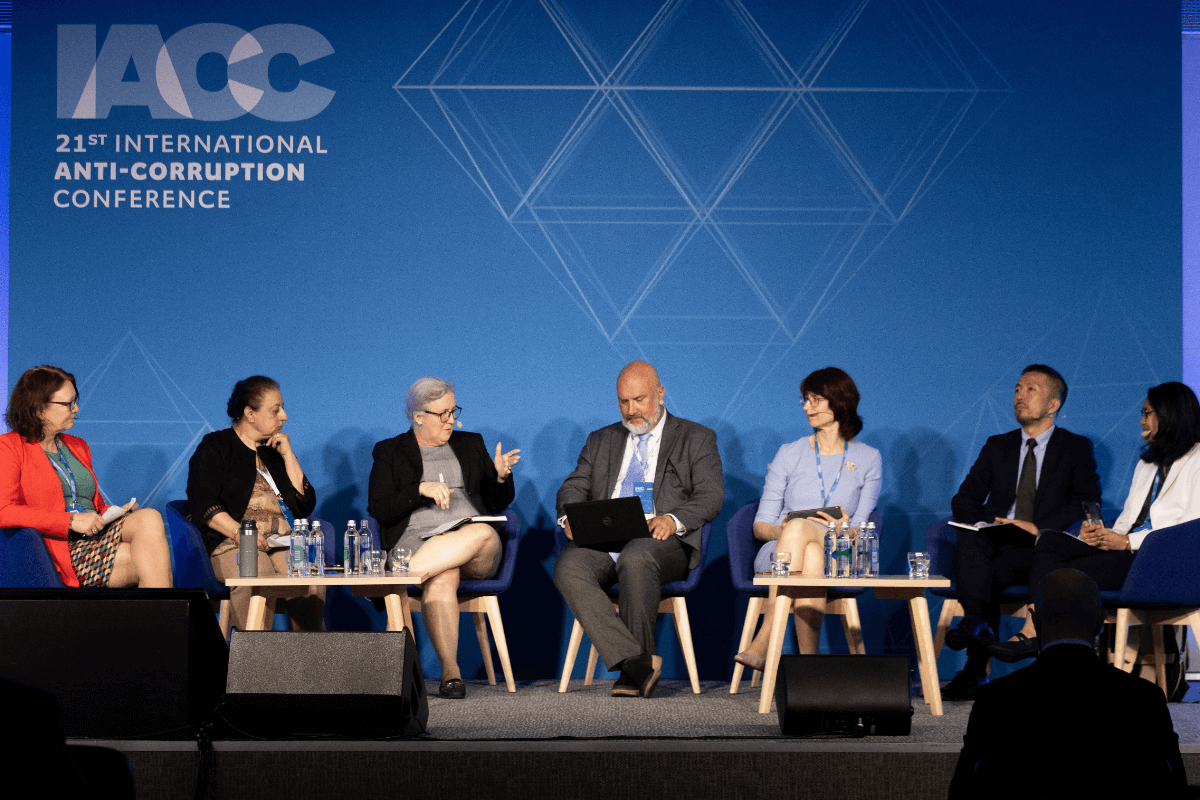With more than 70 countries going to the polls this year, the concern about how dirty money funds elections is a global one.
This topic brought together experts from government agencies, newsrooms and civil society at the International Anti-Corruption Conference in Vilnius, Lithuania, to discuss how different ideas could pave the way for a United Nations resolution on stricter political finance controls at the Conference of the States Parties to the United Nations Convention against Corruption in Doha next year.
“Funding comes in many forms: private donations, public subsidies, membership fees, illicit sources. Some of that funding is completely legitimate, and some of it is more problematic. The question is how to deal with those problematic sources of funding associated with elections. The driving force of corruption is undeniably secrecy,” said Bjørg Sandkjær, State Secretary for International Development at Norway’s Ministry of Foreign Affairs.
On paper, this problem should be managed. At least 181 countries in the world have some sort of regulation in place to govern political funding.
Yet, political funding scandals appear worldwide, especially concerning how political parties are funded.
Donations from anonymous sources, foreign sources, shell companies or third parties need to be more strictly regulated, said Dr. Yukihiko Hamada, who leads the Money in Politics (MiP) programme at the International Institute for Democracy and Electoral Assistance (International IDEA).
Of all the elections in 2024, one of the most contentious was likely India’s general elections which took place from April to June 2024. “Polling went on for six weeks, and 1.1 billion euros were seized by the Election Commission [in India]. This is just the tip of the iceberg,” said Ritu Sarin, Executive Editor at The Indian Express, one of India’s largest and oldest English-language newspapers.
In India, a major concern was the issue of electoral bonds, a controversial instrument for funding electoral candidates and parties in India. This scheme was initially rolled out to flush out illicit cash and make financing more transparent. But the reality became that both individuals and corporations could purchase these interest-free bonds and use them to make anonymous political donations.
It was so successful that 56 percent of all political funding from 2016 to 2022 was made through electoral bonds.
However, in February, India’s Supreme Court declared electoral bonds to be unconstitutional. “So now we are at a stage in India where the bonds are gone, and we don’t know how election funding will be done,” said Sarin.
In the weeks prior to the elections, revelations showed donors came in thick and fast. Certain companies facing federal investigations saw these inquiries slow down, others were granted state licences they had been pursuing, and many got financial benefits fast-tracked.
The Indian Express has covered this issue in depth. “The disclosure of electoral bonds makes it very clear that it is the corporations who have been funding the political parties and they have been doing so much generously to the party in power [Bharatiya Janata Party – BJP],” said Sarin.


